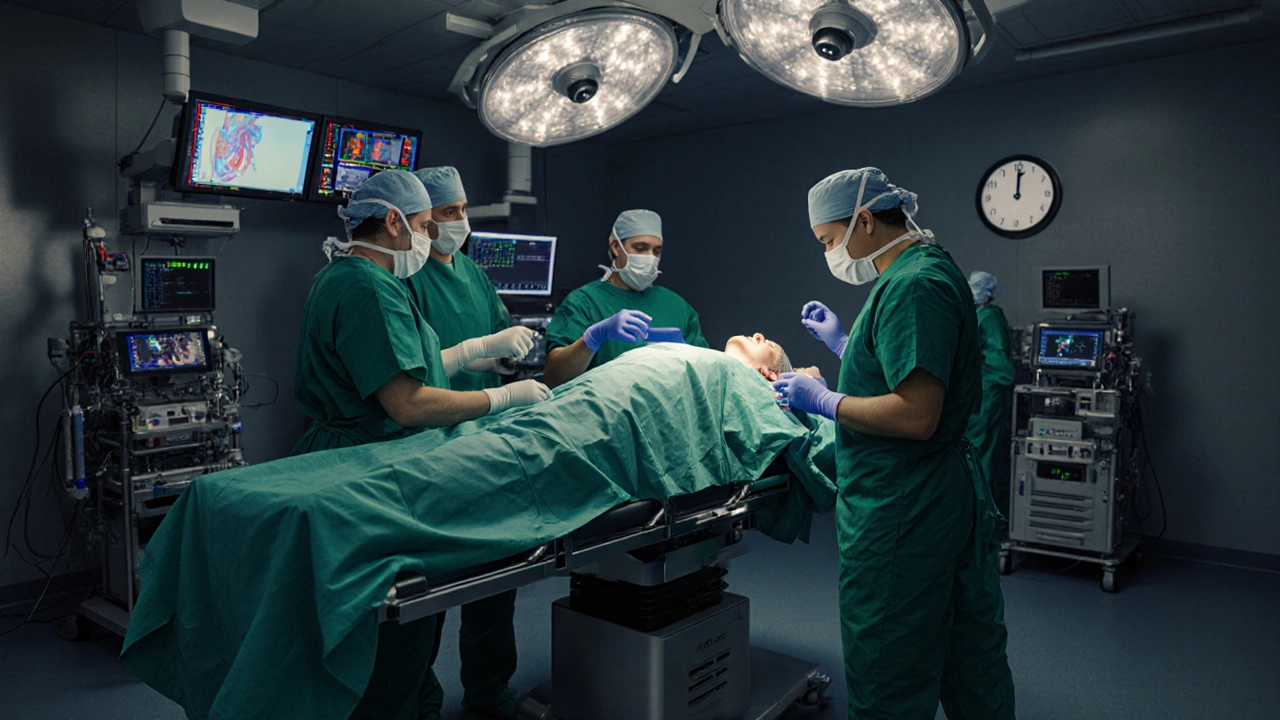Valve Replacement Time: What to Expect After Heart Surgery
When you undergo a valve replacement, a surgical procedure to fix or replace a damaged heart valve that no longer opens or closes properly. Also known as heart valve surgery, it’s one of the most common cardiac operations in India and around the world. The goal isn’t just to fix the valve—it’s to help you breathe easier, move without fatigue, and get back to life without constant chest tightness or dizziness. But the real question most patients ask isn’t about the surgery itself—it’s about valve replacement time. How long does it actually take to recover? And what happens in the weeks and months after you leave the hospital?
Recovery isn’t a single number. It’s a process shaped by your age, overall health, the type of valve used (mechanical or biological), and how well you follow rehab guidelines. Most people start feeling better within 4 to 6 weeks, but full recovery can take 3 to 6 months. During that time, your body is healing the chest incision, rebuilding strength, and adjusting to how the new valve changes your heart’s rhythm. You’ll likely need physical therapy to regain mobility, and your doctor will monitor for signs of infection, blood clots, or irregular heartbeat. Many patients don’t realize that emotional recovery matters just as much as physical recovery—fatigue, mood swings, and even anxiety are normal after open-heart surgery.
Related to this is the heart valve type, the choice between a mechanical valve that lasts decades but requires lifelong blood thinners, or a biological valve made from animal tissue that doesn’t need anticoagulants but may need replacement in 10–15 years. Also known as prosthetic valve, this decision directly affects your long-term care plan and impacts how you think about valve replacement time—not just the first recovery, but possibly a second surgery down the road. Then there’s cardiac rehabilitation, a structured program of monitored exercise, nutrition advice, and education to help your heart heal safely. Also known as heart rehab, it’s not optional—it’s the single biggest factor in reducing readmission rates and improving long-term outcomes after valve surgery. Without it, recovery slows. With it, many patients return to walking, gardening, or even light travel within a few months.
What you’ll find in the posts below are real stories and clear facts from people who’ve been through this. You’ll read about how anger can flare up after surgery, why intimacy needs a careful restart, and how pain management works in the first weeks. You’ll also see how recovery from valve replacement compares to knee replacement or bone surgery—because while the body heals in similar ways, the heart demands a different kind of patience. These aren’t theoretical guides. They’re practical checklists, timelines, and warnings from people who lived it. Whether you’re preparing for surgery or helping someone through recovery, this collection gives you the unfiltered truth about what comes next.
-
17
Learn the typical duration of common heart surgeries, what influences the clock, and how to plan for recovery. Get realistic timelines for bypass, valve, transplant and more.
